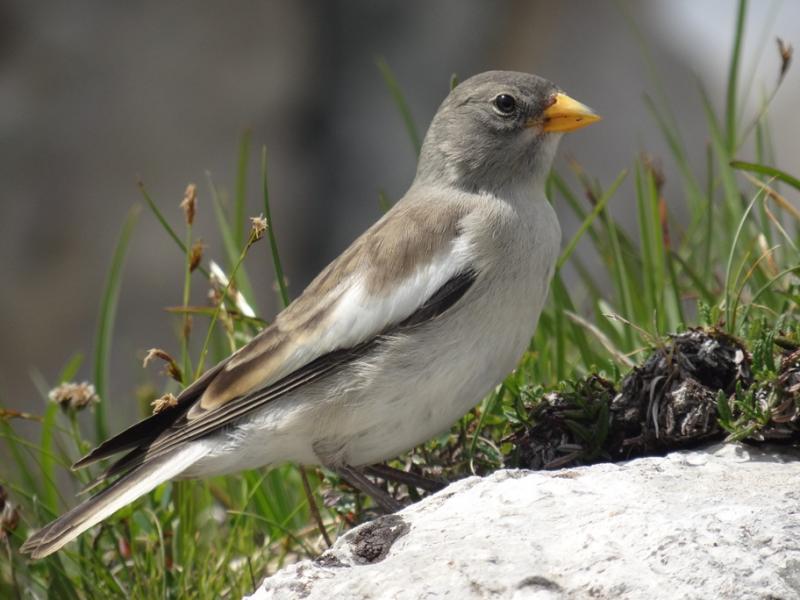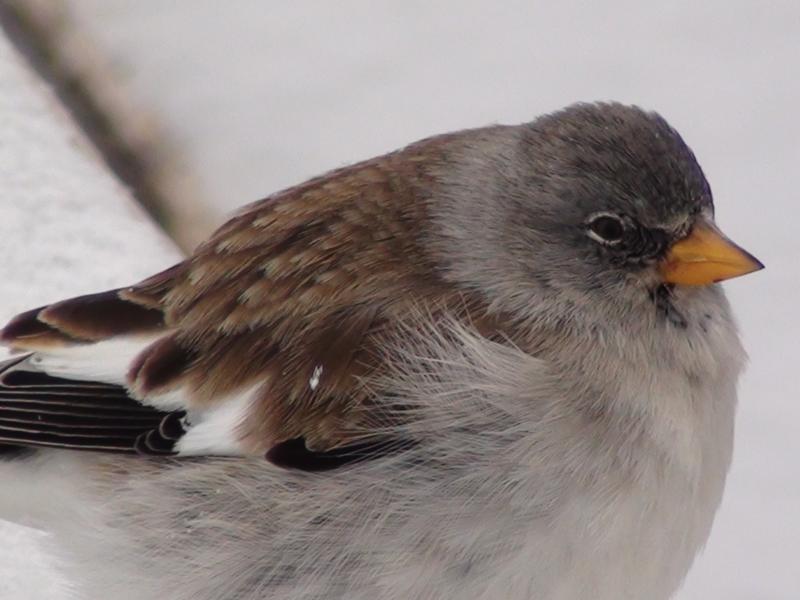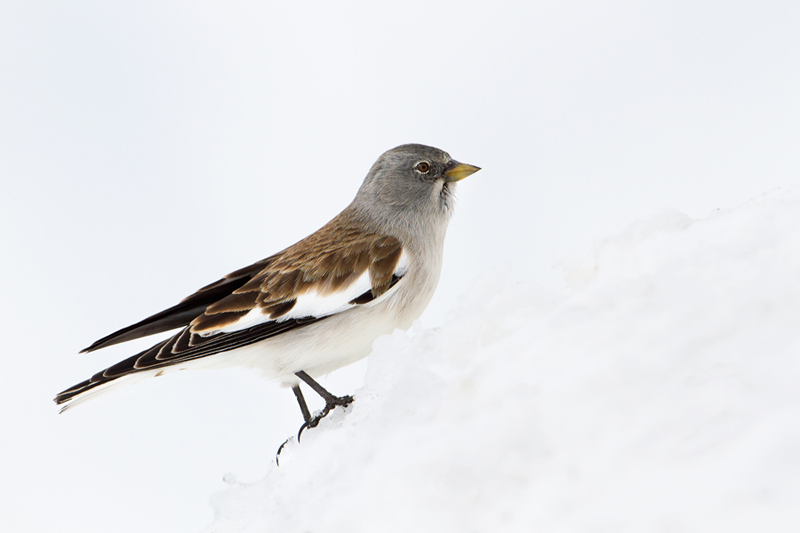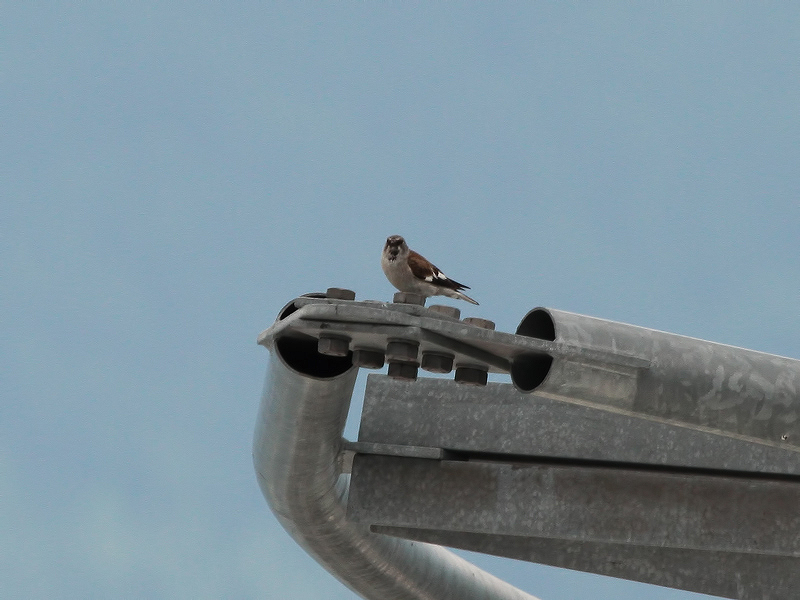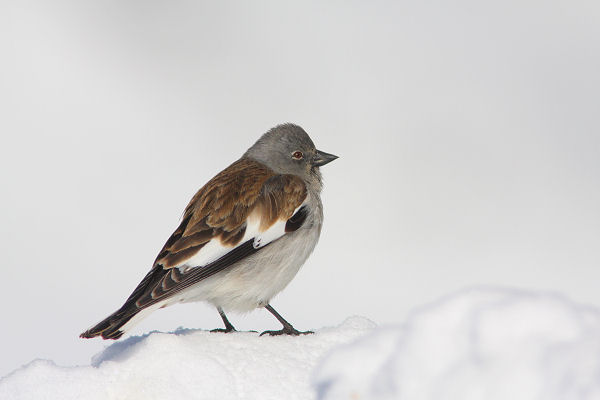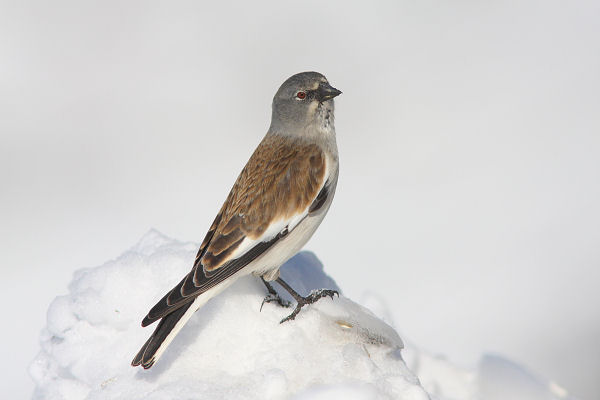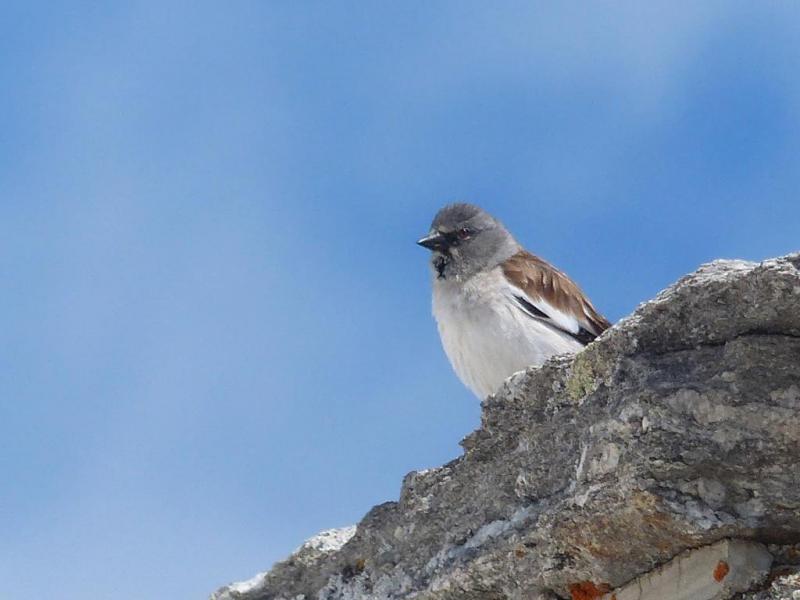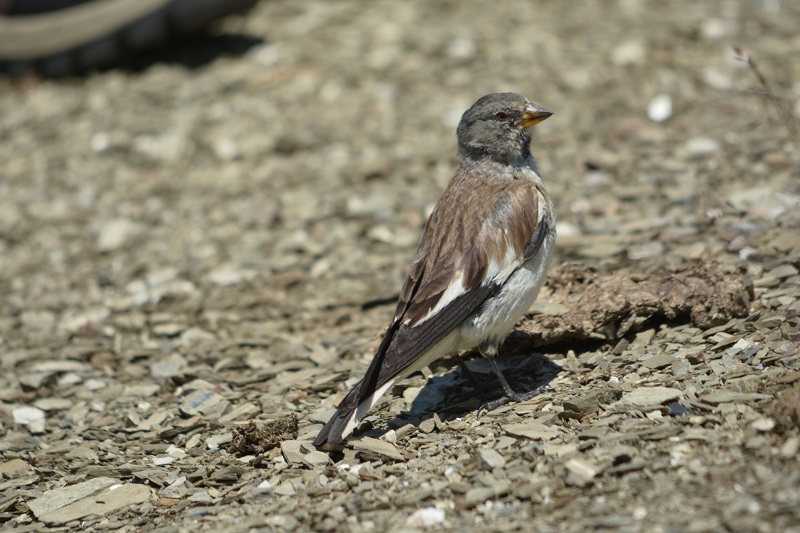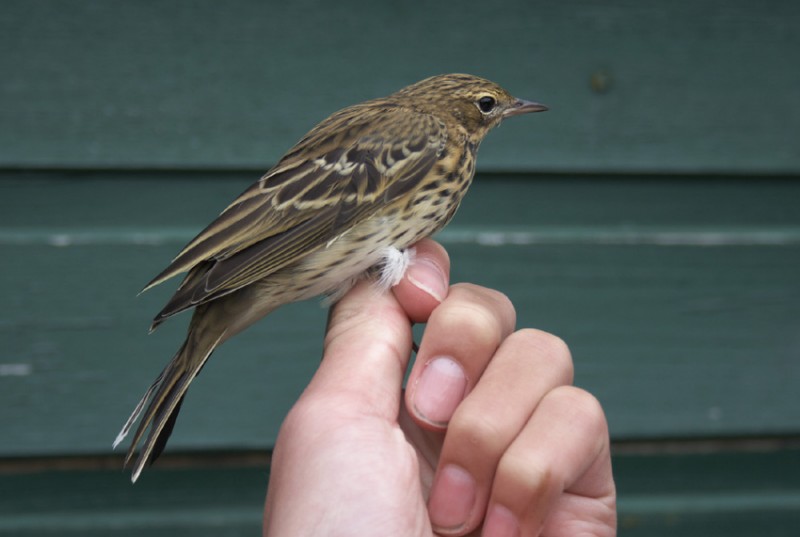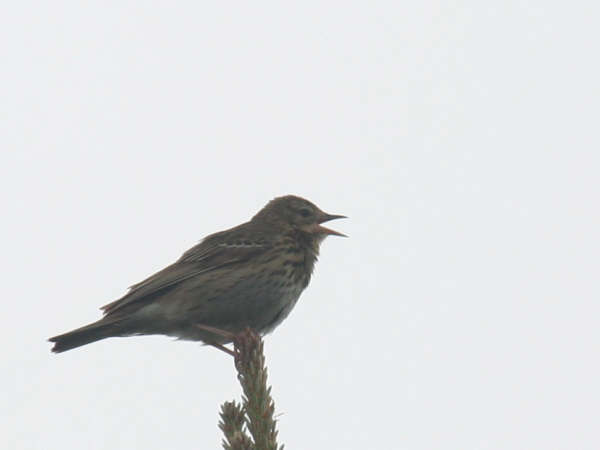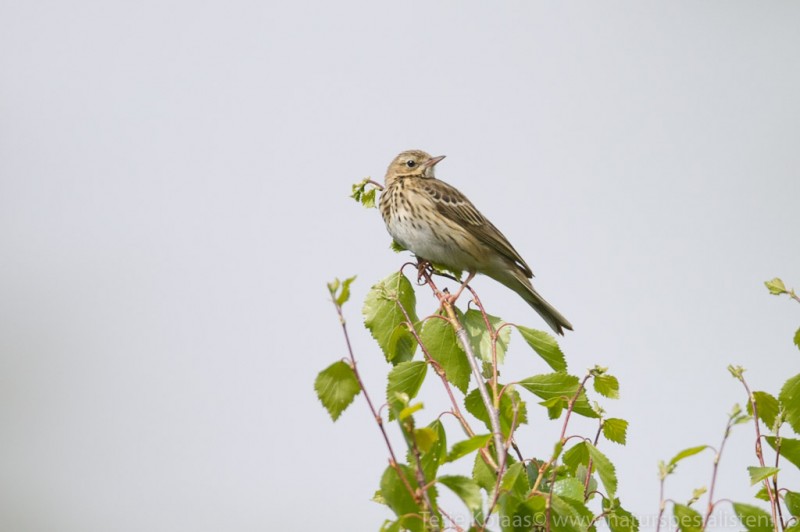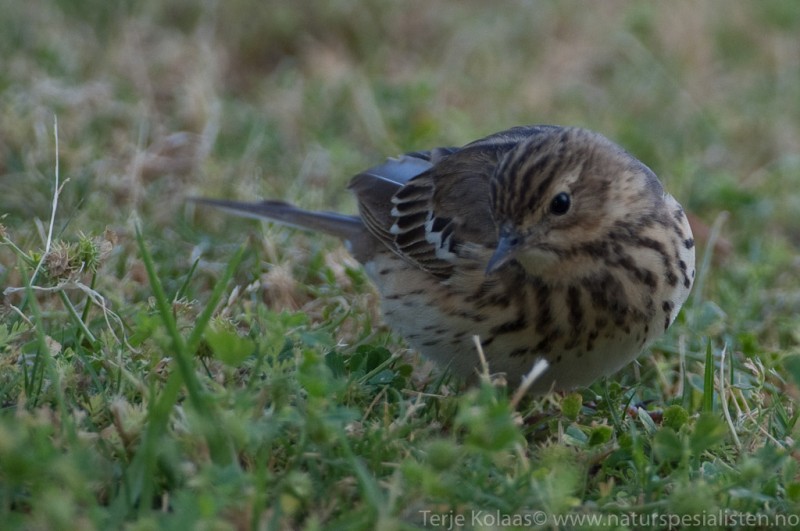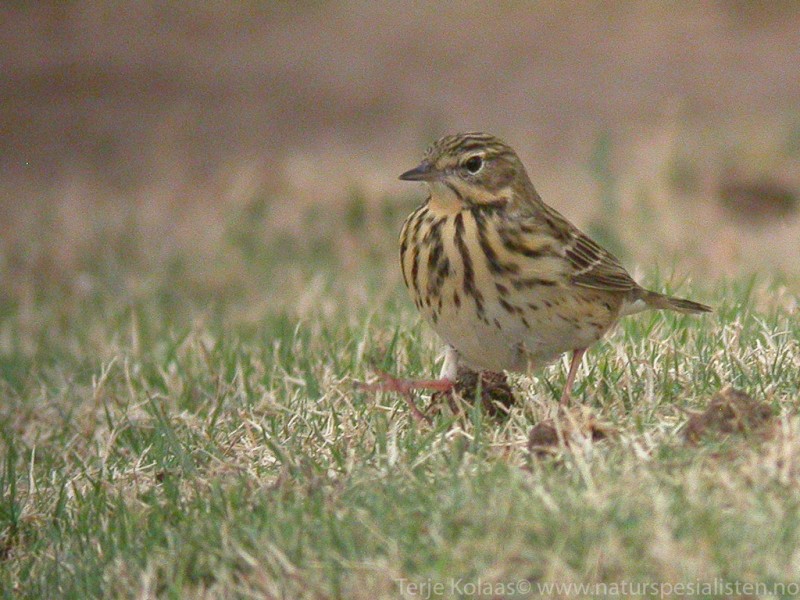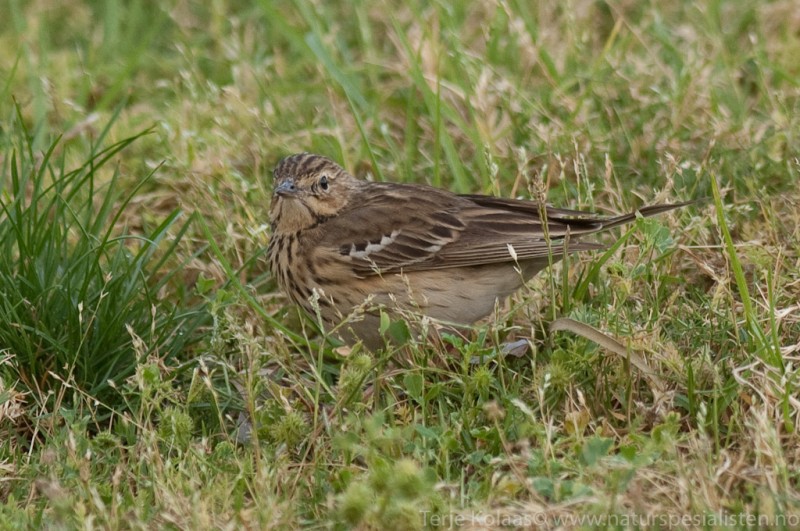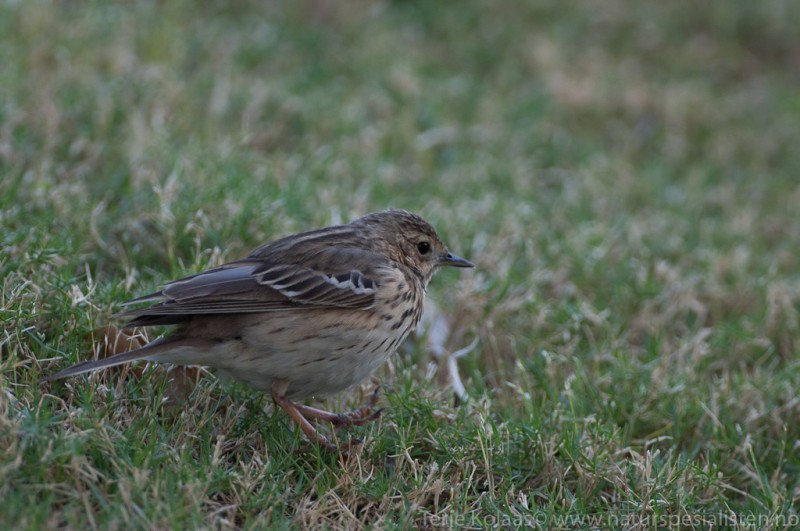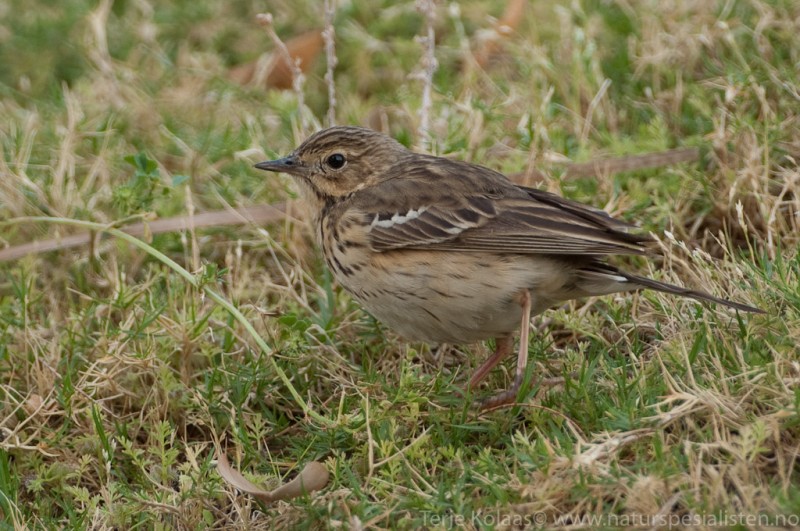White-winged Snowfinch (Montifringilla nivalis)
Tree Pipit (Anthus trivialis)
Unmistakalble where there is no overlap with Snow Bunting (almost always). Anonymous brown bird with white wing patch when seen foraging on ground. Views in flight are dominated by the white on wings and tail. Fairly long-tailed and passer-like. Distinguishable from Snow Bunting in all plumages by the combination of grey head and brown back. Bill dark in breeding season, and yellowish in winter. Female similar to male but slightly duller coloured. Does not perch in trees. Erect posture and frequent tail-flicking when foraging on the ground. Flight less loose than Snow Bunting, with more frequent glides on stiff wings.
Sound:Rich repertoire. Song a staccato, variable phrase, consisting of short burst of sharp chattering in uneven tempo. The timbre is ringing, rich in harmonics and partly rolling. Among the various contact call the commonest are a high-pitched, sharp "zeet", a deeper, Brambling-like "veet, or a sparrow-like "peea". Alarm call a rolling "trr-r-r-rt", resembling Crested Tit.
Alarm, contact call, song:
Distribution:
Xeno-canto: map
Ecology:Birdlife ecology
Links:
Observation.org Latest observations
Image search Flickr NB! May give other species
CCPhoto by Paul Cools. CC-license
Very similar to Meadow Pipit, but streaking on flanks noticeably finer than on breast. Bill heavier, with pinkish base. Legs pinkish. Short and curved hind claw. Plain rump. Slightly more elongated shape than Meadow Pipit.
Sound:Flight call a short buzzing "tzzzeet". Given at even pitch, and in a fuller tone than Red-Throated Pipit. Song characteristic. Starts with a series of Chaffinch-like "che-che-che" which gives way to long, descending, "ricocheting" whistling notes (especially at the end of song-flight).
Song:
Distribution:
Wikipedia: map (se also Xeno-canto below)
Ecology:Birdlife ecology
Links:
Observation.org Latest observations
Image search Flickr NB! May give other species
CC
 English
English Albanian
Albanian
 Armenian
Armenian
 Bulgarian
Bulgarian
 Catalan
Catalan
 Croatian
Croatian
 Czech
Czech
 Danish
Danish
 Dutch
Dutch
 Finnish
Finnish
 French
French
 Georgian
Georgian
 German
German
 Greek
Greek
 Hungarian
Hungarian
 Italian
Italian
 Latvian
Latvian
 Lithuanian
Lithuanian
 Macedonian
Macedonian
 Norwegian
Norwegian
 Polish
Polish
 Portuguese
Portuguese
 Romanian
Romanian
 Russian
Russian
 Sami : Lule sami
Sami : Lule sami
 Sami : North sami
Sami : North sami
 Sami : South sami
Sami : South sami
 Scientific names
Scientific names
 Serbian
Serbian
 Spanish
Spanish
 Swedish
Swedish
 Ukrainian
Ukrainian


